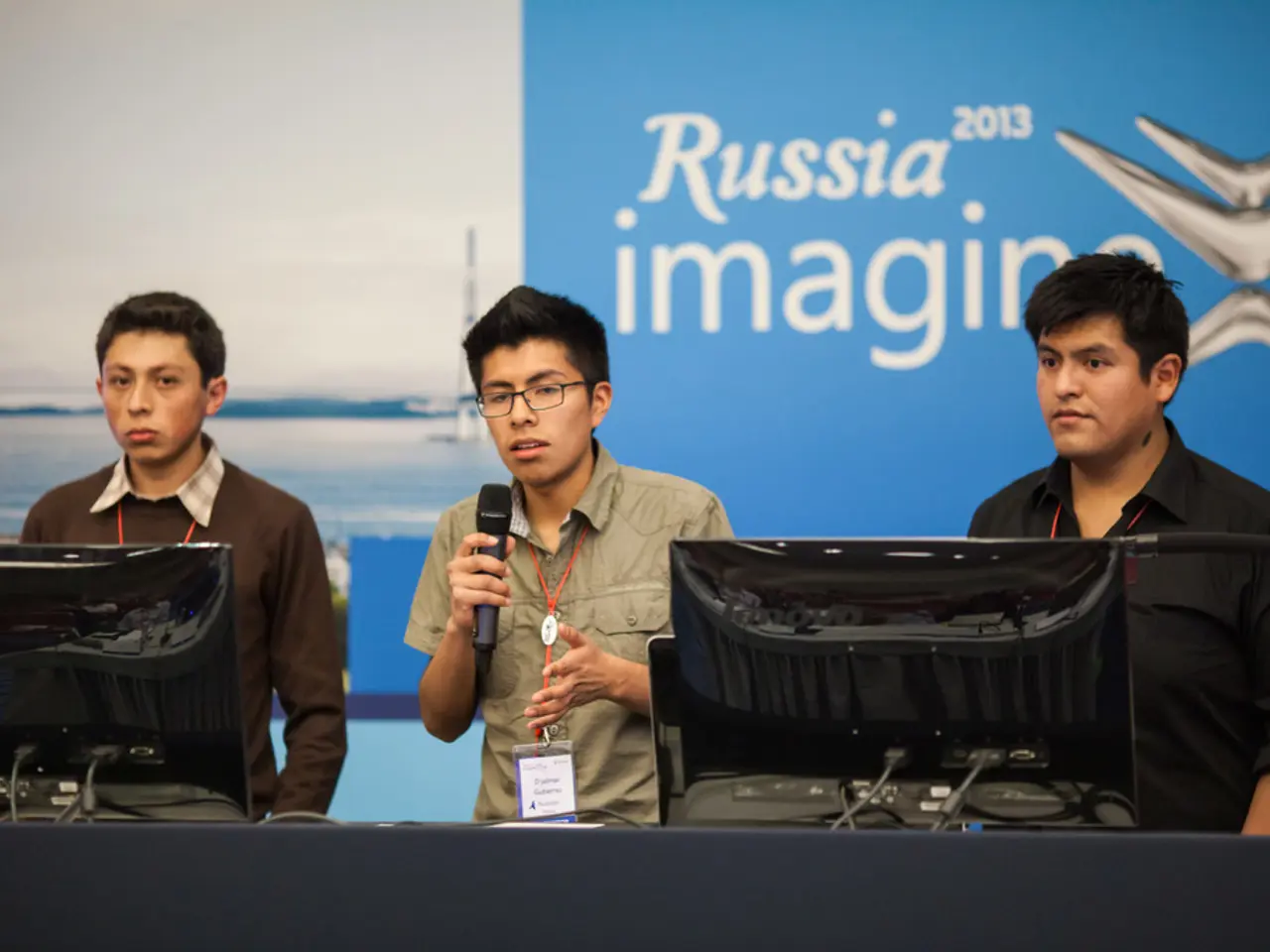OpenAI's dominance in AI predictions for 2025 is largely attributed to its partnership with Microsoft and a two-year advantage in constructing AI without significant competition
In the world of technology, Silicon Valley continues to focus on building and developing artificial intelligence (AI). One of the key players in this field is OpenAI, a company that has recently made significant strides in AI research.
OpenAI's latest model, o3, has cracked the ARC-AGI benchmark, suggesting a lead in AGI development. This achievement has raised optimism about the potential for AI to surpass human-level intelligence in the near future.
However, the path to Artificial General Intelligence (AGI) is fraught with challenges. OpenAI's CEO, Sam Altman, believes that AGI will have surprisingly little societal impact, but he indicates that it might be "a few thousand days away," while superintelligence might be here sooner than anticipated.
One of the key challenges for reaching AGI is developing systems with true adaptability and broad cognitive abilities beyond narrow task specialization. Ensuring safety and control of powerful AI agents, and achieving robust understanding and learning mechanisms akin to human intelligence, are also critical hurdles. The rapid advancement towards AGI also raises concerns about managing potential risks and ethical implications.
Regarding leadership in the race to AGI, major companies with bold AI visions and decisive strategies are pulling ahead, particularly in the tech sector. OpenAI is often cited due to its influence in both research and deployment of advanced AI. Other leading companies include Google DeepMind, Microsoft, and various startups aggressively investing in AGI research and applications.
The United States government is actively supporting AI development as part of a competitive global strategy, emphasizing innovation, economic growth, and national security. Collaboration between government agencies, corporations, and research institutions is expected to drive global standards and frameworks for advanced AI development.
OpenAI's financial stability has been a concern, with the company recently on the verge of bankruptcy with projections of a $5 billion loss within a year. However, key investors, including Microsoft, SoftBank, NVIDIA, and Thrive Capital, raised $6.6 billion through another round of funding to keep OpenAI's business afloat.
As we move towards AGI, society must be ready to adapt to changes brought by this technology, including rethinking education, social safety nets, and governance. AI safety researcher Roman Yampolskiy has suggested that with enough resources, AGI could be built today.
Looking ahead, predictions for achieving AGI by 2025 are divided. Optimistic views suggest proto-AGI capable of handling most office jobs at a human level could appear within 2–5 years, while conservative estimates place true adaptable AGI at 10+ years away. By 2025, significant advancements in AI are expected, with next-gen models potentially showing greater generalization across tasks.
Beyond 2040, AI systems with true general intelligence are forecasted to emerge, capable of learning and adapting in ways indistinguishable from humans. This could lead to transformative changes in technology, as predicted by Copilot, a product of Microsoft. However, these advancements also raise ethical concerns and security threats that must be addressed to ensure a safe and beneficial future for humanity.
- Microsoft, being one of the leading companies in the tech sector, is an investor in OpenAI, a company working towards Artificial General Intelligence (AGI).
- The rapid advancement in AI, such as Microsoft's Copilot, indicates that AI systems with true general intelligence might emerge beyond 2040.
- Windows, a software developed by Microsoft, is commonly used on Personal Computers (PCs), and Microsoft's Edge browser is also a key part of its software offerings.
- In the gaming world, Microsoft's Xbox console represents a significant part of its technology portfolio.
- Hardware advancements are crucial for the development of AGI, as more powerful and efficient hardware allows for the training and deployment of increasingly complex AI models.




